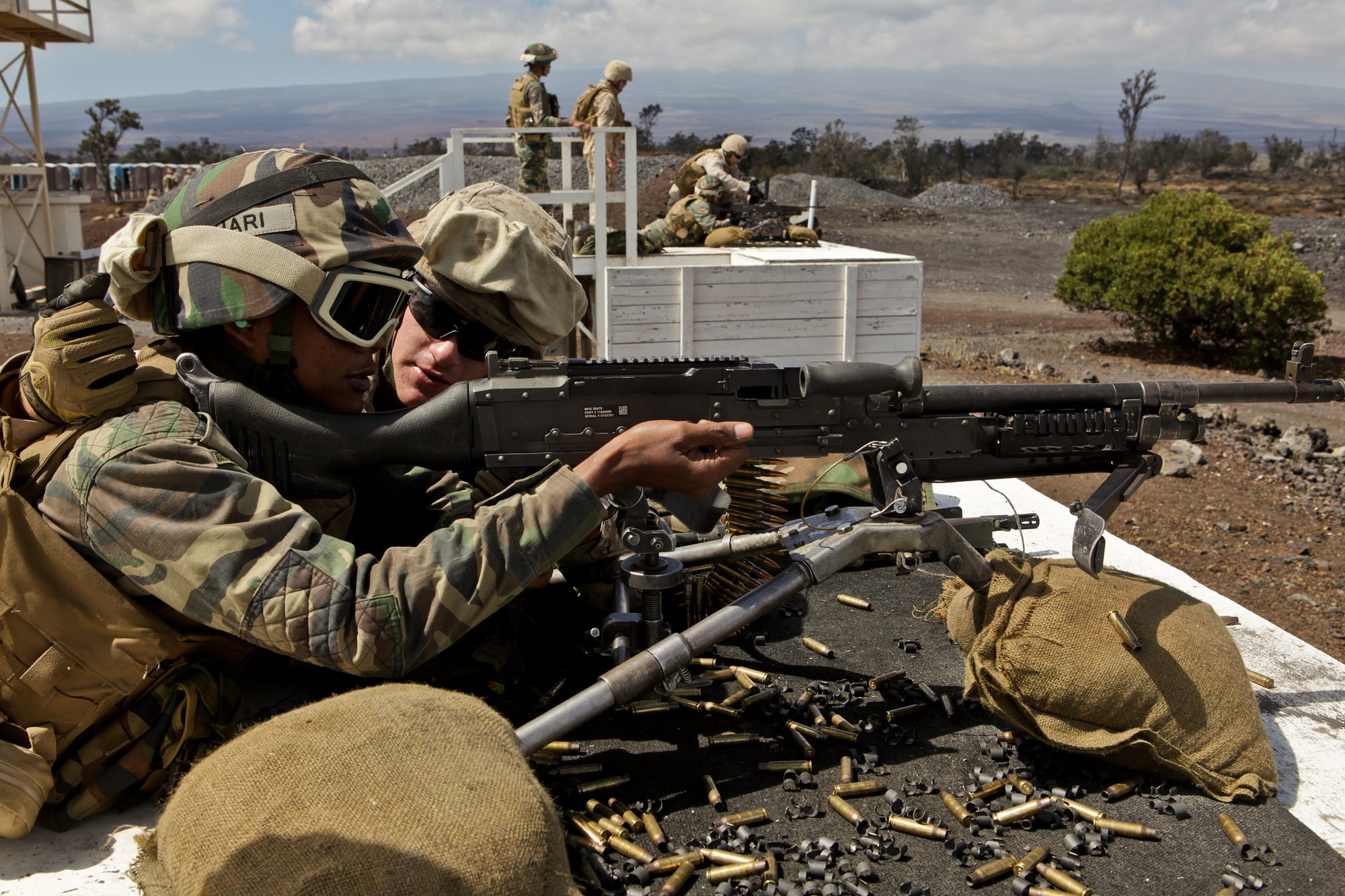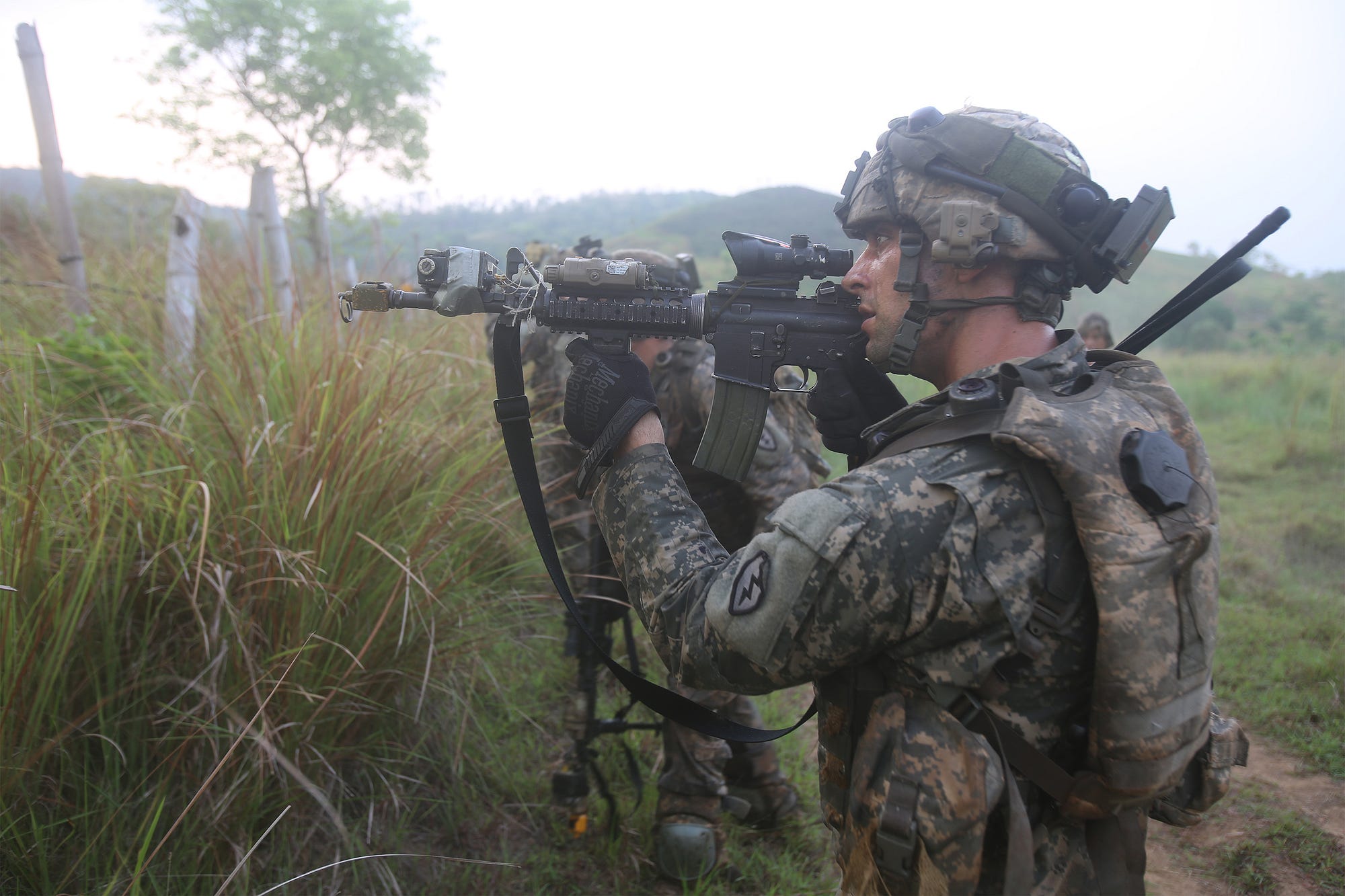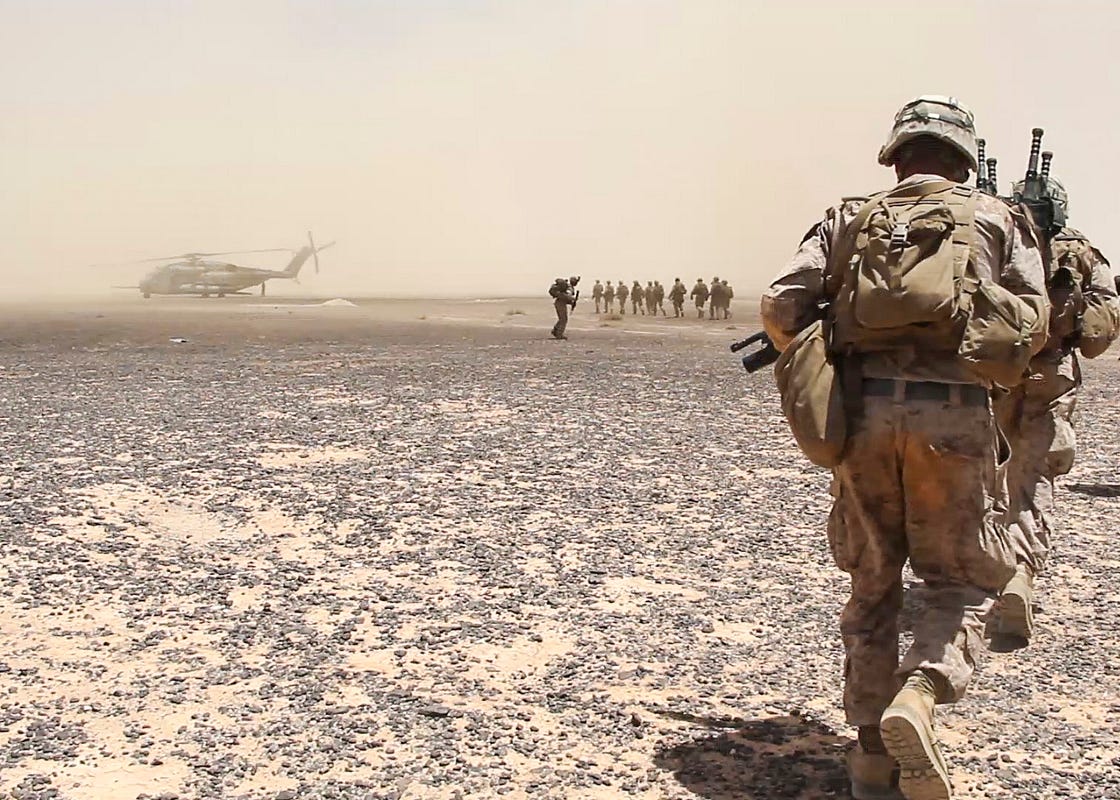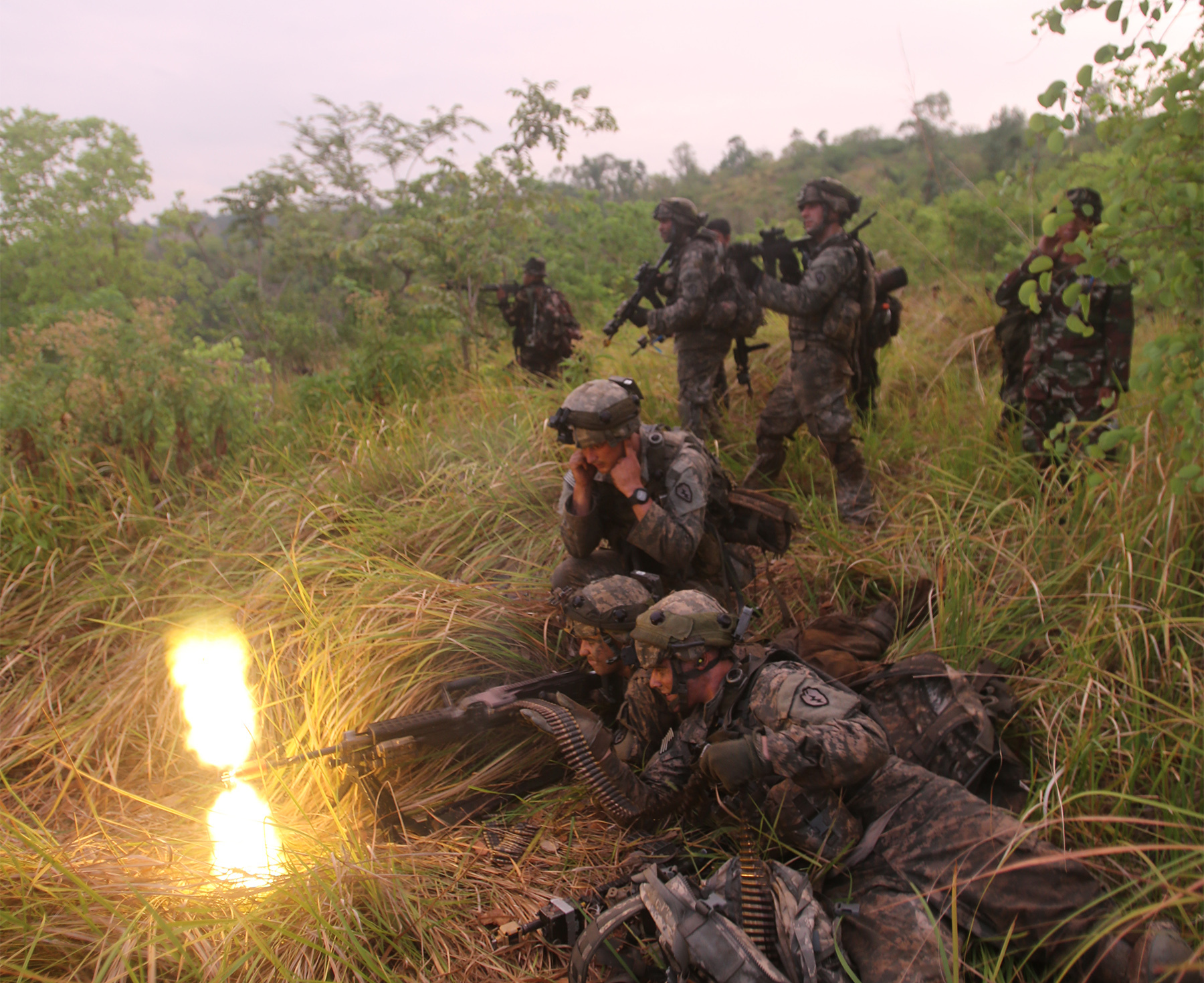MATTHEW GAULT
Sebastian Junger is a rare filmmaker. His trio of documentaries about soldiers fighting in Afghanistan neither praise nor demonize America’s troops. Unlike most popular war films, he doesn’t turn soldiers into superheroes.
The Oscar-nominated Restrepo is about the job. Korengal is about the men.The Last Patrol is about those men trying to come home. In a long and discursive interview, we talked with Junger about warped perceptions of the troops, why he went to war and modern conceptions of manhood.
Junger argues that Americans are enamored with war, even when they say they don’t believe in it. He also thinks young men in the west no longer have a sense of what it means to be a man—and some of them go to war to find out.
“I’m a journalist,” he tells me. “I don’t put any political agenda into my work. I think the right wing tends to idolize soldiers—you can’t talk about them critically in any way. The left wing went from vilifying them in Vietnam to seeing them as victims of a military-industrial complex.”
He laughs over the phone. “Both views of soldiers are just absurd.” More than just absurd, Junger sees both views as harmful.
“No one should be beyond commentary and criticism,” he says. But he also cautions against thinking of soldiers as victims. The way Junger sees it, soldiers choose to fight.
“They’re very proud that they are soldiers,” he says. “It really undermines the idea that in our society people are able to make choices, and the choices they make are ones they can be proud of. It’s very elitist.”
The power of choice—and its consequences—is one of several themes Junger explores in his work. One of the most moving moments in Korengalcomes when team leader and former Sgt. Brendan O’Byrne explains why he hates the phrase, “You did what you had to do.”
According to O’Byrne, he chose to go to war. He has to live with that choice. People telling him he did what he had to do robs O’Byrne of his agency.
“The whole society is fascinated by war,” Junger says. He tells me about giving lectures across the country. He’ll stop in the middle of his talk and ask people to raise their hands if they’re against war.
“Everyone raises their hands,” he notes. “And then I’ll say, ‘But who here has paid $12 to be entertained by a Hollywood war movie?’ Just about everyone raises their hand.”
“War is so compelling that you can even get a room full of pacifists to pay money to be entertained by it.”
It also makes for a strange media landscape. As I write this, American Sniperis number one at the box office. James Fallows’ recent article for The Atlantic—about the disconnect between soldiers and civilians—is the most talked about think-piece of the season.
Junger understands both the media’s obsession and the disconnect. “The narratives in war are just more powerful and dramatic than the narratives in peacetime,” he says.
His sister lives in a small, liberal town outside of London. “Every year,” he says. “They light bonfires and the teenagers—boys and girls both—reenact the Battle of Hastings with cardboard swords and shields.”
“My sister is a complete and utter feminist and pacifist,” he explains. “She doesn’t see the irony. She’s participating in this wonderful festival … that’s reenacting a battle. Nobody reenacts the Treaty of Ghent. [It] just isn’t that compelling.”
“We all want peace, but we’re all fascinated by the drama of war. It transcends our moral beliefs.”
“I think people would have a more honest, realistic relationship to the important topic of war,” he continues. “If they could actually acknowledge that part of themselves that responds to it positively.”
 U.S. Marines training in the Pacific in 2010. U.S. Navy photo. At top—Sebastian Junger at Observation Post Restrepo on Sept. 16, 2007. Tim Hetherington/AP photo
U.S. Marines training in the Pacific in 2010. U.S. Navy photo. At top—Sebastian Junger at Observation Post Restrepo on Sept. 16, 2007. Tim Hetherington/AP photo
War is hell, the cliche says, yet a lot of people are still drawn to it. Why would so many young men risk their lives? Junger thinks it comes down to biology and rites of passage.
“Young men go to war for the same reason that young boys play war,” he explains. “War is an extremely compelling endeavor for a lot of young men.”
What’s arguably more important, however, is that men bond extremely well together when subjected to the stress of combat. They “have an extremely strong affiliating response to each other,” he says.
When young men in America turn 18, they suddenly find themselves in the adult world with little direction. Some go to college, some find full-time work and others join the military.
“I think there’s a lot of cultural reinforcement,” Junger adds. “You know, you’re not a man until you’ve done something really difficult? And war is very difficult.”
War gives young males a chance to find a peer group and purpose to their lives. That’s important in a society where a lot of young men don’t have either.
“I think this is probably the first society in history that actively discourages an intelligent conversation about what manhood should require of men,” Junger tells me. “Simultaneously, our society is asking adult males to be men,” he continues.
But what’s a man, anyway? “[Society should] help define it. So that I can achieve it. So that I can know when I’ve crossed the finish line. And then everyone shrugs their shoulders and says, ‘You know, it’s actually not polite to talk about it like that.’ It’s really confusing to young men.”
We talk about tribal societies that have clear rituals and expectations of adulthood. “There’s a lot of initiation rites for young men around the world that involve torturing young men,” he explains. “So that the young man can then demonstrate that he’s willing to undergo an enormous amount of pain in order to achieve adult status.”
“They could actually live untested lives, if left to their own devices,” Junger says. But “they don’t want 30-year-old males wondering about their manhood.”
“That’s not functional,” he adds.
Readers who’ve followed the GamerGate controversy, read a Men’s Rights forum or spent too much time in the wrong bar on a Saturday night have witnessed the effects of adult males insecure about their masculinity.
It’s not a pretty sight.
But initiation rites help define the line between childhood and the adult world, and they define what manhood is. “We don’t have anything like that,” Junger says. “But I think it’s wired in us. It’s certainly wired into our language when we talk about, ‘C’mon, be a man about it,’ or ‘Man up.’”
 The U.S. Army training in The Philippines in 2014. U.S. Army photo
The U.S. Army training in The Philippines in 2014. U.S. Army photo
“I remember as a young man just having no idea,” he continues. “How do I become this thing I want to be? How do I do it? So what happens is young men try to devise their own rites of passages.”
Taken too far, these rites can be harmful to ourselves and society. We smoke cigarettes, do drugs, damage property and do other dumb stuff to prove our manhood.
“One way to do it,” Junger explains. “Is to join the Army. It’s in there, in the male brain—‘Okay, if I go to war, surely I’ll come back a man.’’
When he asked soldiers in Afghanistan about their reasons for joining, it was a common response. “Some said, ‘I joined the Army because of 9/11. We were attacked and we have to defend ourselves,’” Junger says.
“Some of them were just straight up, ‘My father fought in Vietnam, my grandfather was in D-Day … I don’t wanna break that lineage of men in my family fighting.’”
“And some guys are a little more thoughtful,” he adds. “‘Well, I sorta thought it might make a man out of me.’”
I ask him about the origins of the current confusion in the American male. When did we stop knowing what it meant to be a man?
“I think the feminist initiative from the ’60s and on very rightly understood that the distinctions made between men and women—culturally and biologically—serving the wrong hands could be used to form the basis of discrimination and repression,” he says.
He pointed to racial politics, explaining how generations of white males used pseudo-science and pseudo-biology as pillars of an oppressive system.
“There are no biological differences between the races … but there are biological differences between the genders,” he says. “So feminists—very understandably—got quite nervous at any discussion around that topic of innate differences.”
 U.S. Marines during Exercise Eager Lion in 2013. U.S. Navy photo
U.S. Marines during Exercise Eager Lion in 2013. U.S. Navy photo
“You can have real biological differences between the genders and have absolute equality,” Junger says. “It does not mean the genders are going to be identically good at all the same things.”
According to Junger, these theories are strongly rooted in academia, and particularly the social sciences.
“I have friends who are anthropologists and primatologists and evolutionary psychologists … [who are under] an enormous amount of pressure to generate data that shows that all gender differences are cultural.”
“In that kind of environment,” Junger continues. “If you dare talk about what it means to be a man, what you’re saying is men are different from women.”
And that means no one can have an honest conversation about manhood.
“We aren’t asking, ‘What does it mean to be a human being?’” he says. “‘What’s it mean to be a man?’ Once you have that conversation you offend a lot of academics.”
This discussion of manhood, Junger continues, inevitably leads to a discussion of war. “There is a huge debate in academia about whether war is an eternal human experience, or an artifact of the organized city-state or nation state.”
“That is patently absurd,” he says. “But there is this idea … if you say that war is a natural thing in the human experience and gender differences are biologically based, you get accused of trying to aid and abet the implementation of a system of violence.”
He tells me about a primatologist friend of his who studies chimpanzees. He began to study how chimpanzees wage war. “He was literally told by a fellow academic, ‘You’re undermining the cause of peace,’” Junger recounts.
“Men are clearly wired for [war],” he continues. “The male response to war is an evolutionary adaptation that clearly works for our species.”
He points to behavioral studies of chimpanzees. “[Male chimps] are more aggressive. They will dominate rival troops of chimpanzees and take over their territory. They’ll kill the adult males, and take over the females and take over the territory. Exact coordinated aggression clearly serves them really well.”
“It’s a left-wing version of the Christian right rejecting the theory of evolution,” he says. “I mean the far left is also now rejecting the theory of evolution, which is just insane.”
 U.S. and Philippine troops during an exercise on May 15, 2014. Marine Corps photo
U.S. and Philippine troops during an exercise on May 15, 2014. Marine Corps photo
Junger certainly struggled with his own masculinity. That’s why he became a war reporter. “It just seemed dramatic and compelling and sort of heroic and important,” he explains. “Just the words, ‘war reporter,’ sounded kind of badass.”
Before journalism, Junger climbed trees for a lumber company. “I took trees down,” he says. “Hanging from a rope with a chainsaw. That also felt like a very intense, slightly heroic job and it was very dangerous, and I absolutely loved it.”
But he didn’t want to climb trees for the rest of his life. “War reporter sounded like a more respectable person … barely,” he laughs.
Junger has been to war and back. He chronicled America’s longest conflict in gritty detail. It worked for him. But what do you do when you come home from war?
“I don’t want to be in combat,” he says. “There’s something to be said for the experience of combat and the atmospherics of it. It makes very powerful video.”
He doesn’t see the sense in repeating those experiences. But that won’t stop millions of other young males from going to war to find out for themselves. For many, war is a shortcut to adulthood. It’s a clear rite of passage in a society that’s increasingly confusing, complicated and contradictory.
Junger also suspects that’s why so many alienated Americans have problems coming home from war—a topic he explored in The Last Patrol. He says he’s writing about that alienation for Vanity Fair. His focus is, again, the troops.
He admits his take on post-traumatic stress disorder is subversive. “Society has the problem,” Junger says. “Not the soldiers.”
No comments:
Post a Comment